‘World Championships are decided by pacing’: How important is it to pace your ride for time trials, racing and sportives?
Coach Matt Rowe shares his insights on how to go the distance
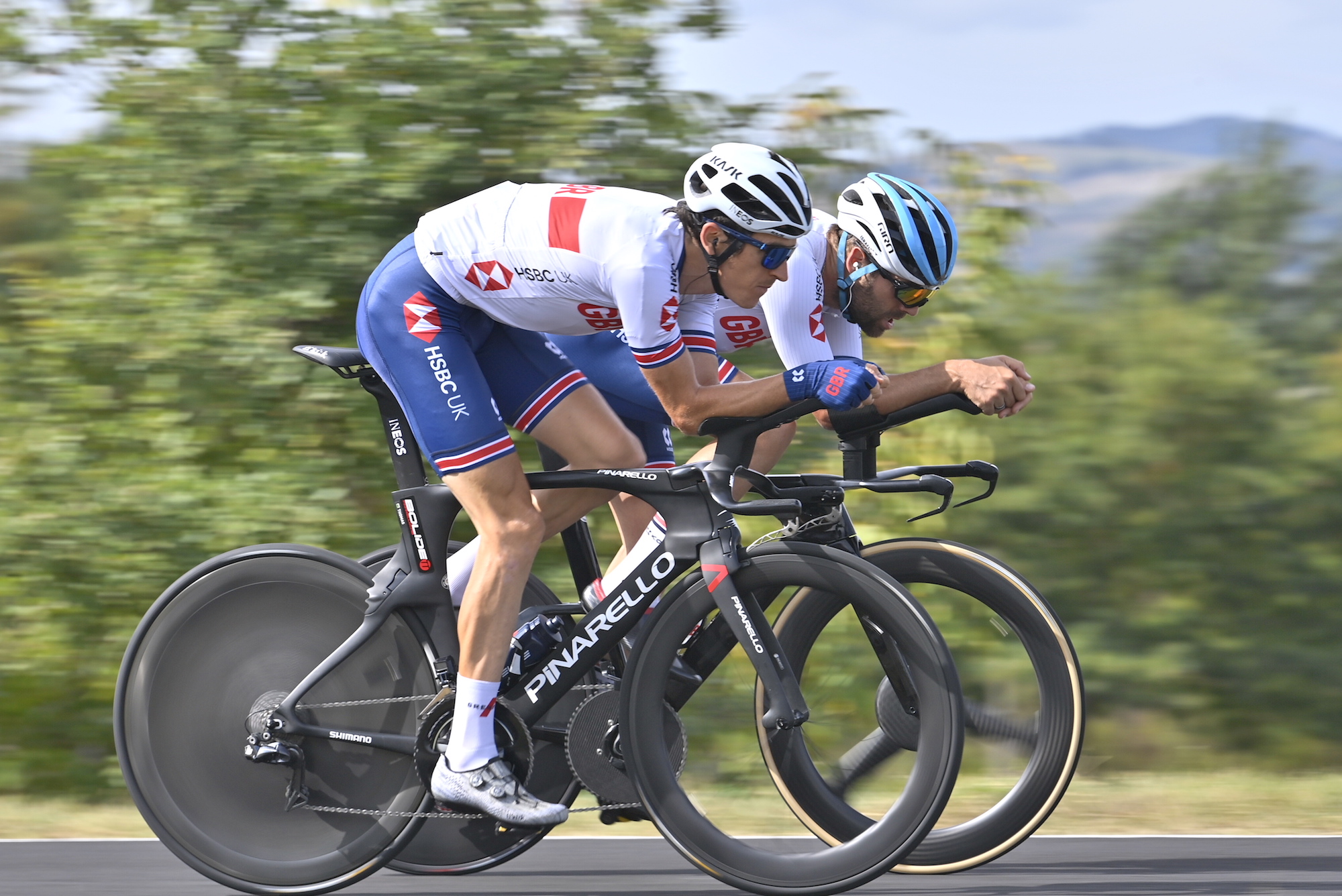

Geraint Thomas wowed cycling fans earlier this year with his phenomenal World Championships time trial ride.
The former Tour de France champion scored a fourth-place finish, up there with some of the world’s best pure TT riders, including his Ineos team-mates Filippo Ganna and Rohan Dennis.
But the most surprising detail of Thomas’s result came after the finish, when he revealed he’d ridden his effort without his power readings after forgetting his Garmin GPS device before the start.
The Welshman’s outstanding ride, without the most essential data for a time trial, raised questions about how much better he would have ridden if he knew his wattage, and also about how important pacing is for riders of every level.
Cycling Weekly asked Matt Rowe, from Rowe and King coaching, and a Garmin ambassador, to get his thoughts on how essential pacing is for pros and amateurs alike.
“In time trialling you're on your own,” Rowe said. “It's an individual event. Pace judgment is absolutely critical.
“For road racing, pacing is still important, but you need to maintain pace with the bunch, with the leaders of the race. So pace judgement is less important in road racing.
Get The Leadout Newsletter
The latest race content, interviews, features, reviews and expert buying guides, direct to your inbox!
“So pace judgment, important for road racing, for parts of road racing - key climbs key sections - and for time trialling, absolutely fundamental. Races are literally won and lost, World Championships are decided by your ability to pace your effort.”
How important is pacing for the pros?
There are a few notable examples of riders ditching the power data and still getting the best out of themselves in a TT - most famously Chloe Dygert in the 2019 World Championships, and Tadej Pogačar in the penultimate stage of the 2020 Tour de France, both of whom secured victories on feel alone.
But for most pros in the modern era, pacing with power data is key.
Rowe said: “If you're looking to perform in a time trial especially. If you take the top 10 at the Worlds, chances are nine of them are heavily reliant on the data using a Garmin.
“Courses are programmed into the Garmins, they know what turns are coming up, they know the gradients, how to pace the effort swiftly, they would know how long the next climb is, how steep the next climb is where it flattens out, they would know how much power to produce on which seconds of the climb.
“Data is knowledge, knowledge is power.”
And how did the lack of data effect Thomas's Worlds ride in Imola?
"By and large, most riders heavily rely on data," Rowe said.
"And they use data all through the season to really kind of fine tune and hone themselves in and Geraint would have known exactly what power was required over what sections of the course to get the best best out of him.
"So we're going with a very solid game plan and then have basically the means to follow that game plan just stripped away from you, both physically is a massive detriment because you're not going to get the most out of yourself physically, but psychologically as well, that's a massive blow. Straight away, you're gonna feel on the back foot because you become so reliant on that data so, for sure it impacted him psychologically,
"This is a prime example of how the sport is getting so technologically advanced."
So what data is most important?
Opening up the options screen on your Garmin or other GPS device can be slightly daunting, from power and heart-rate, to cadence and speed, so which are most useful?
Rowe said speed, while interesting, is more a byproduct of the effort you put into the bike, so power, measured in watts, are the most fundamental numbers, followed by elevation, and then a map of your course.
Pacing for amateurs
Pacing isn’t just for the pros either - working on your effort can have huge benefits for amateurs taking part in time trials, road races and even sportives.
Rowe said: “The best way to pace your effort with power is first knowing roughly what power you can sustain for a given duration.
“Looking at your power you're producing is the best way to pace your effort and you need to kind of you need to know what you're capable of within certain situations.”
A good way of testing the importance of pacing yourself is finding a stretch of road around 4km-long and riding from A to B as fast as possible, first on feel and then again with power, comparing your times after the ride.
Rowe said he “almost guarantees” that any rider would go faster the second time around.
He added: “Pacing yourself in training is absolutely fundamental because you get good at what you practice, and you get to learn and understand your body a lot better.
“So by pacing yourself in training you get a feel for what good pace looks like come event day, whether the event is the World Championships for Geraint or it's your local club 10, or even a sportive, whatever it is.
“After learning how to pace yourself using data, using metrics in training, you're then able to kind of replicate that come race day.”

Thank you for reading 20 articles this month* Join now for unlimited access
Enjoy your first month for just £1 / $1 / €1
*Read 5 free articles per month without a subscription

Join now for unlimited access
Try first month for just £1 / $1 / €1
Alex Ballinger is editor of BikeBiz magazine, the leading publication for the UK cycle industry, and is the former digital news editor for CyclingWeekly.com. After gaining experience in local newsrooms, national newspapers and in digital journalism, Alex found his calling in cycling, first as a reporter, then as news editor responsible for Cycling Weekly's online news output, and now as the editor of BikeBiz. Since pro cycling first captured his heart during the 2010 Tour de France (specifically the Contador-Schleck battle) Alex covered three Tours de France, multiple editions of the Tour of Britain, and the World Championships, while both writing and video presenting for Cycling Weekly. He also specialises in fitness writing, often throwing himself into the deep end to help readers improve their own power numbers. Away from the desk, Alex can be found racing time trials, riding BMX and mountain bikes, or exploring off-road on his gravel bike. He’s also an avid gamer, and can usually be found buried in an eclectic selection of books.
-
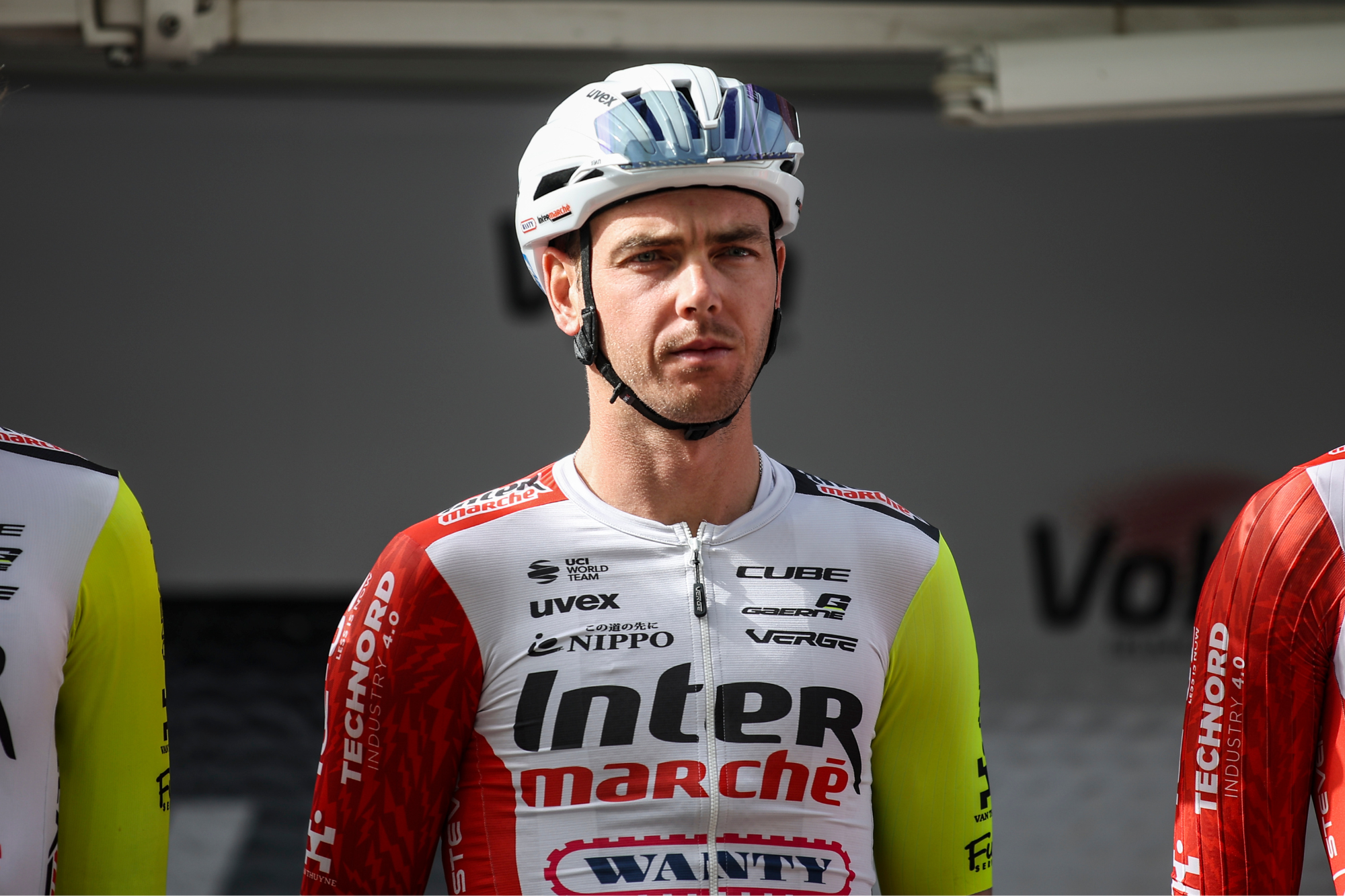 Giro d'Italia rider almost wiped out by goat: 'Albania's great – just watch out for the goats!'
Giro d'Italia rider almost wiped out by goat: 'Albania's great – just watch out for the goats!'Dion Smith of Intermarché-Wanty confirmed it was the first time that a goat had tried to knock him off his bike.
-
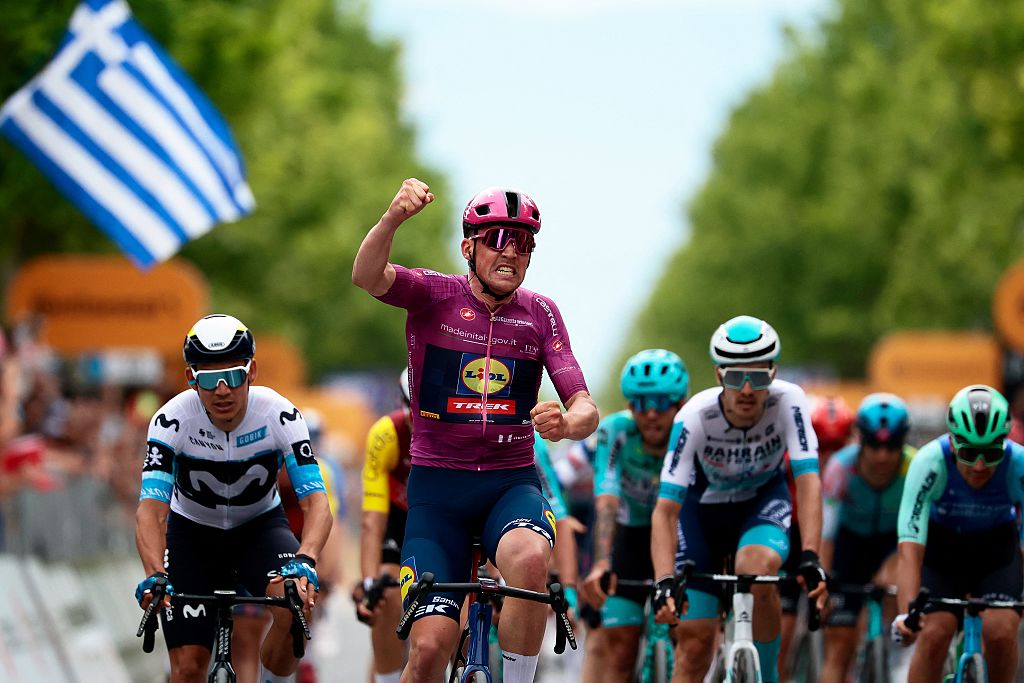 Mads Pedersen reclaims pink jersey after second Giro d'Italia sprint win on stage 3
Mads Pedersen reclaims pink jersey after second Giro d'Italia sprint win on stage 3Former world champion edges out Corbin Strong, with Orluis Aular third
-
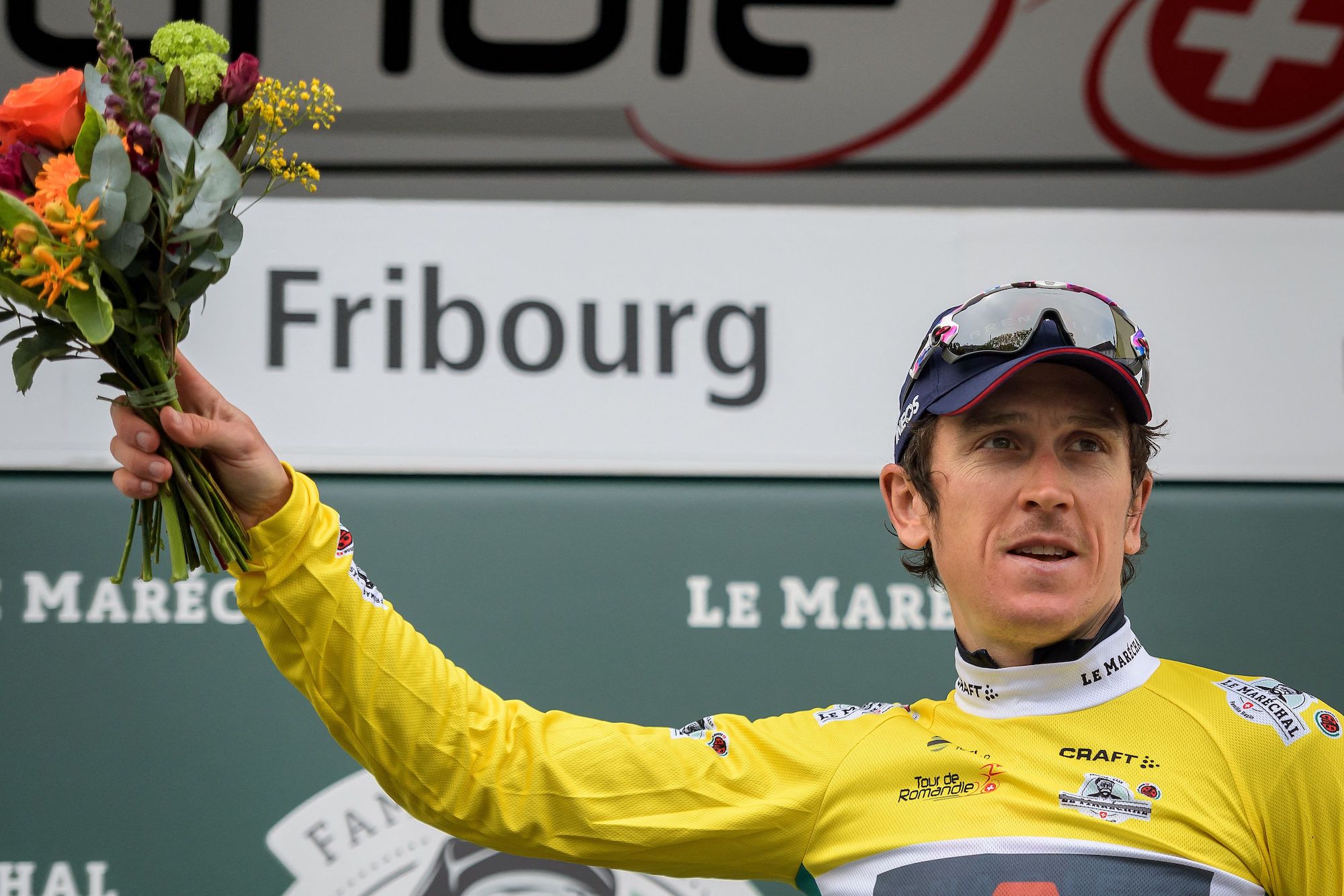 'It's not like I haven't performed since I won the Tour,' says Geraint Thomas, who reaffirms his form with Romandie win
'It's not like I haven't performed since I won the Tour,' says Geraint Thomas, who reaffirms his form with Romandie winThe Welshman took the overall at the 2021 Tour de Romandie as he continues to build towards this summer's French Grand Tour
-
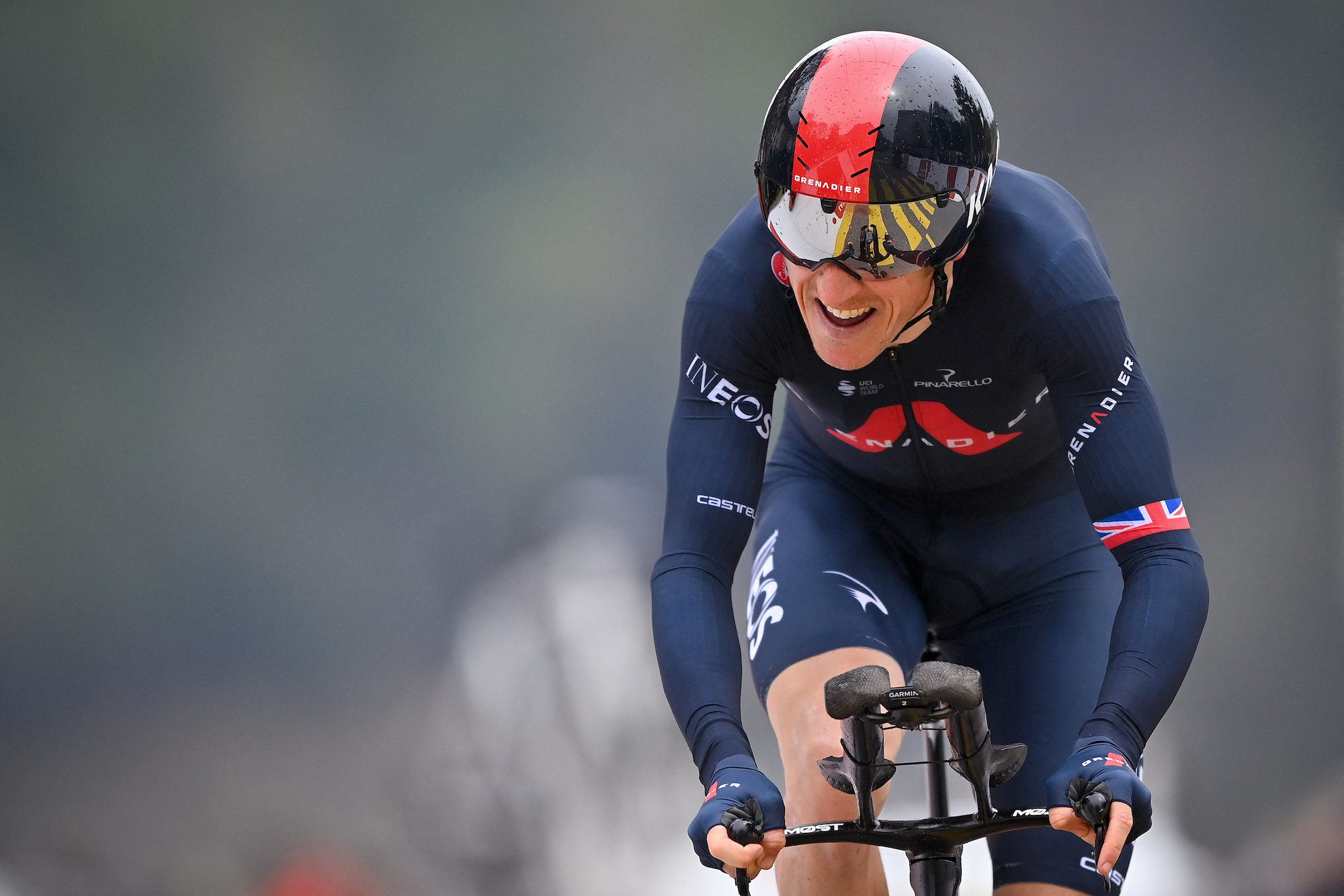 Geraint Thomas makes up for slip with time trial performance to seal Tour de Romandie overall
Geraint Thomas makes up for slip with time trial performance to seal Tour de Romandie overallRemi Cavagna won the fifth and final time trial stage for Deceuninck - Quick-Step
-
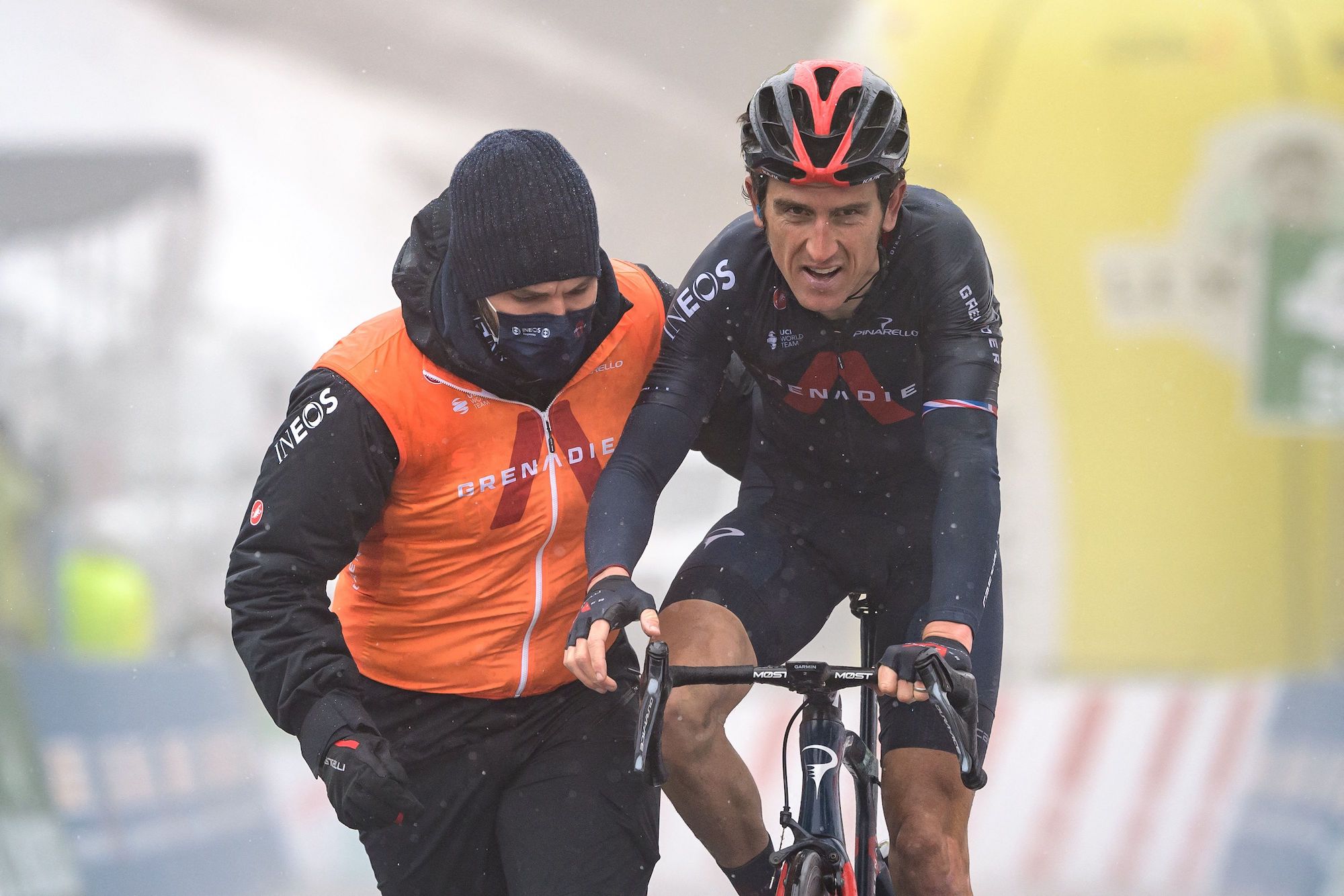 'I had no feeling in my hands' says Geraint Thomas, explaining Tour de Romandie crash
'I had no feeling in my hands' says Geraint Thomas, explaining Tour de Romandie crashThe Ineos rider was on the brink of taking the race lead, and potentially a first win since 2018, when disaster struck in the final few metres
-
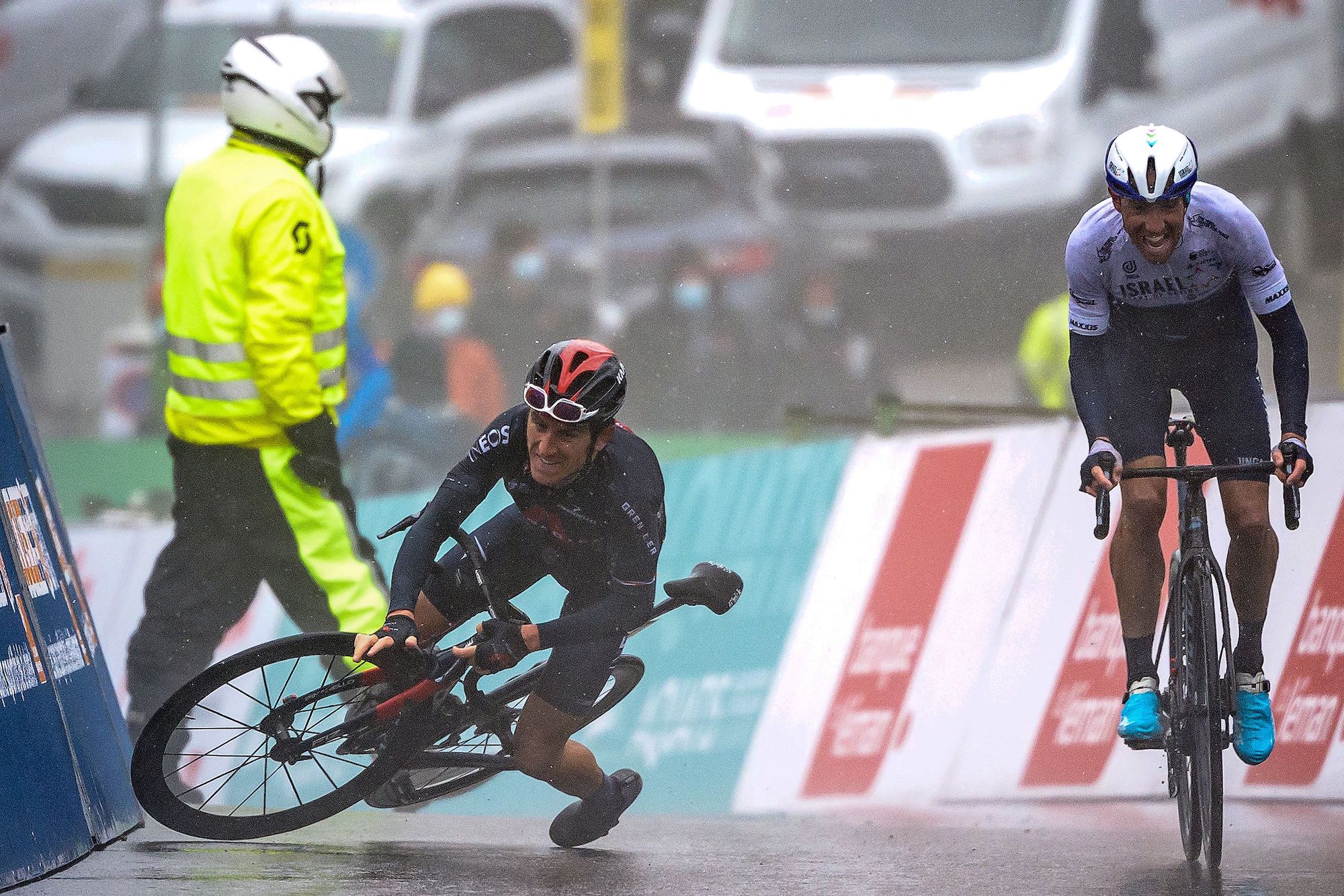 Geraint Thomas crashes in finale of Tour de Romandie stage four as Woods takes win and race lead
Geraint Thomas crashes in finale of Tour de Romandie stage four as Woods takes win and race leadThe Welshman hit the deck in slippery conditions as he sprinted for the line alongside Michael Woods
-
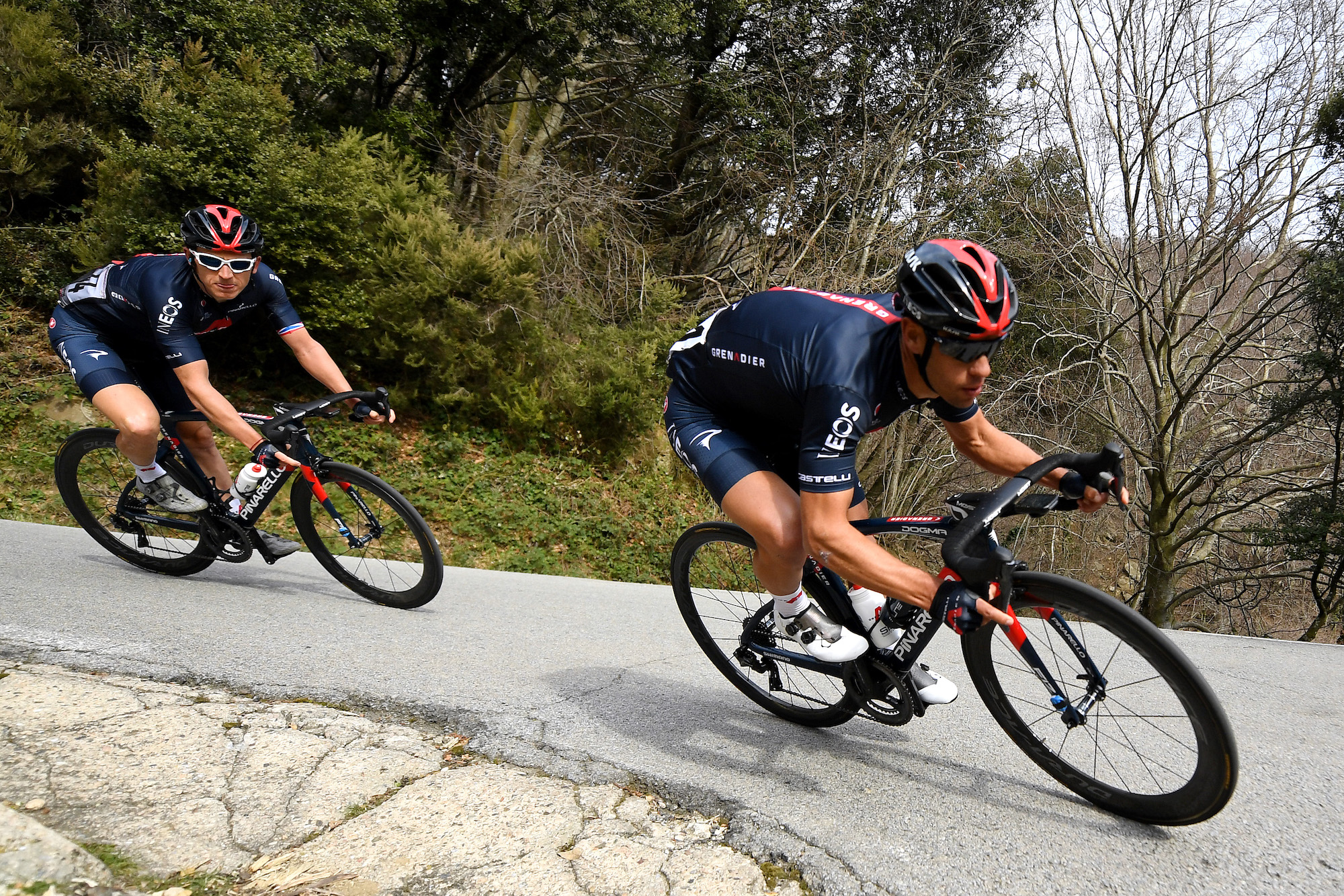 Geraint Thomas leads super-strong Ineos Grenadiers team at Tour de Romandie 2021
Geraint Thomas leads super-strong Ineos Grenadiers team at Tour de Romandie 2021Ineos Grenadiers have sent an exceptionally strong team to the Tour de Romandie 2021 as their riders build towards the Giro d'Italia and the Tour de France
-
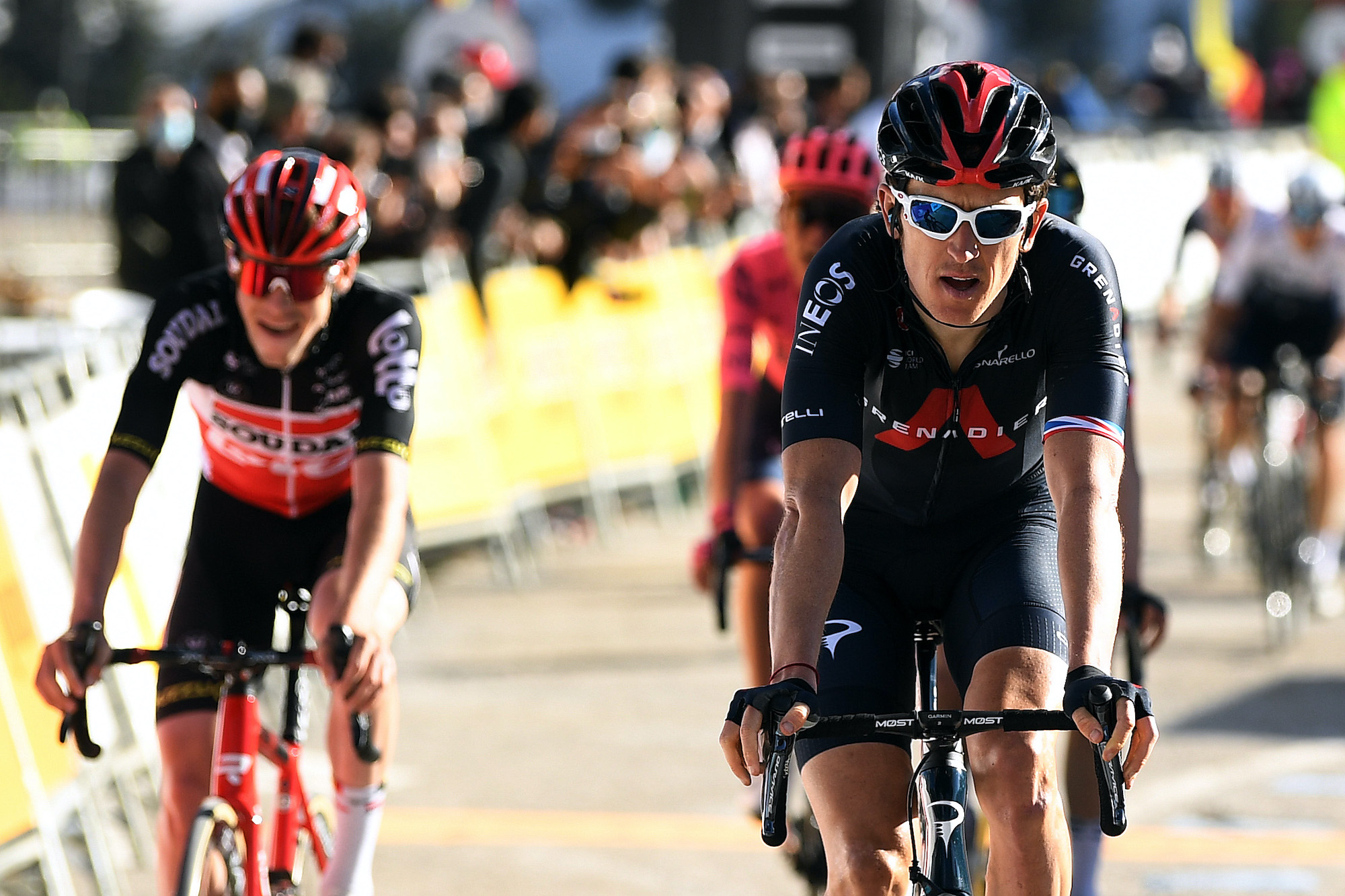 Geraint Thomas eyeing Paris-Roubaix return in 2022
Geraint Thomas eyeing Paris-Roubaix return in 2022The Welshman was speaking on his podcast to four-time winner Tom Boonen when he said he'd like to try and win the Queen of the Classics in 2022
-
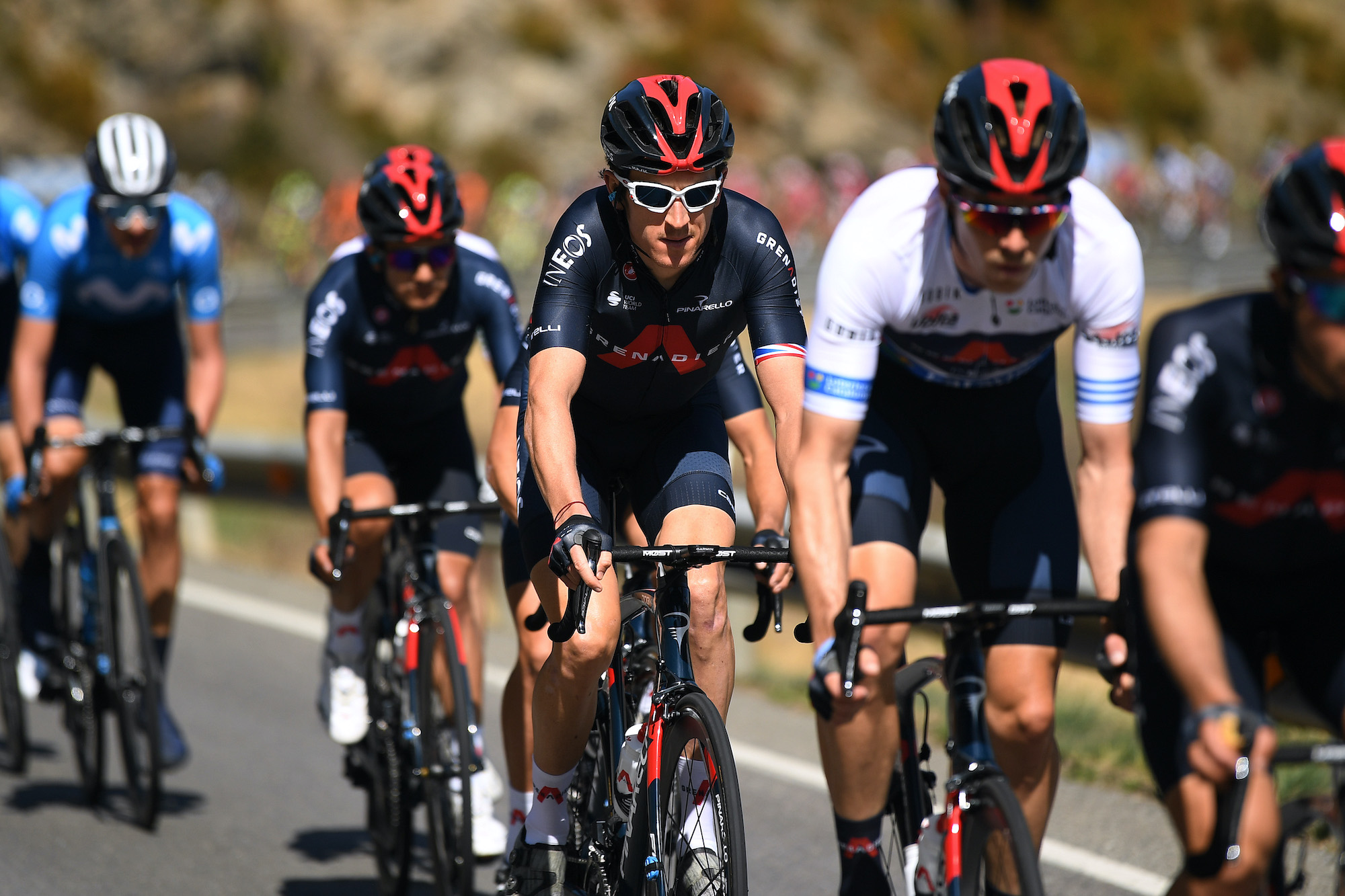 'I'm getting better all the time': Geraint Thomas pleasantly surprised by encouraging early-season form
'I'm getting better all the time': Geraint Thomas pleasantly surprised by encouraging early-season formThe 2018 Tour de France winner says he went to Volta a Catalunya to help the team, but now finds himself third overall with two team-mates above him
-
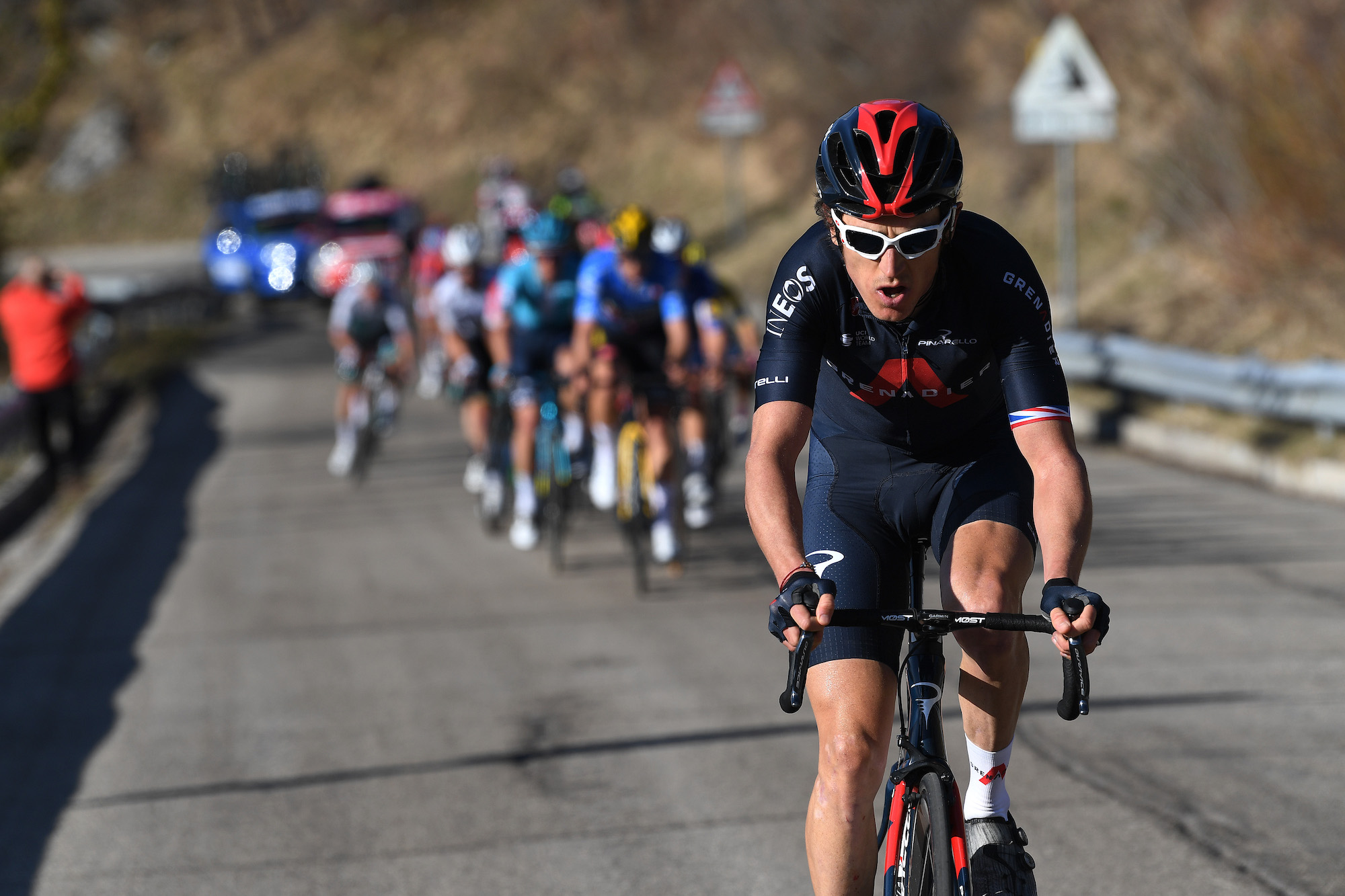 Geraint Thomas doing 'better than expected' as he hangs on to GC top 10 at Tirreno-Adriatico
Geraint Thomas doing 'better than expected' as he hangs on to GC top 10 at Tirreno-AdriaticoThe Welshman says he's happy to just be in the mix as he builds towards this summer's Tour de France